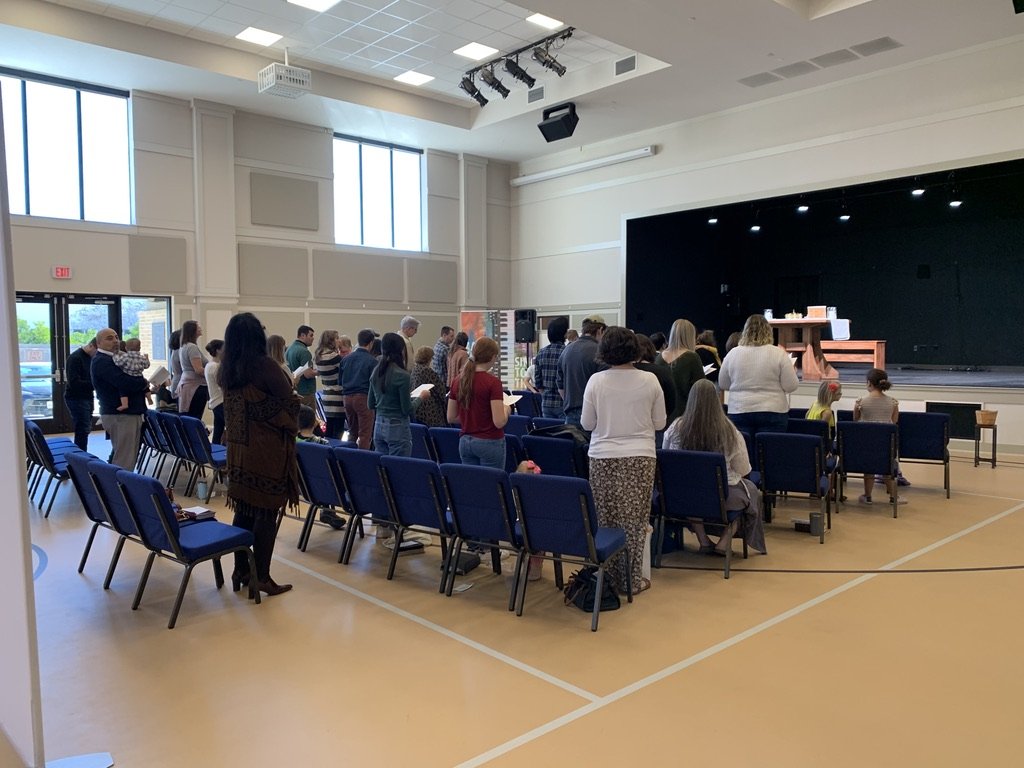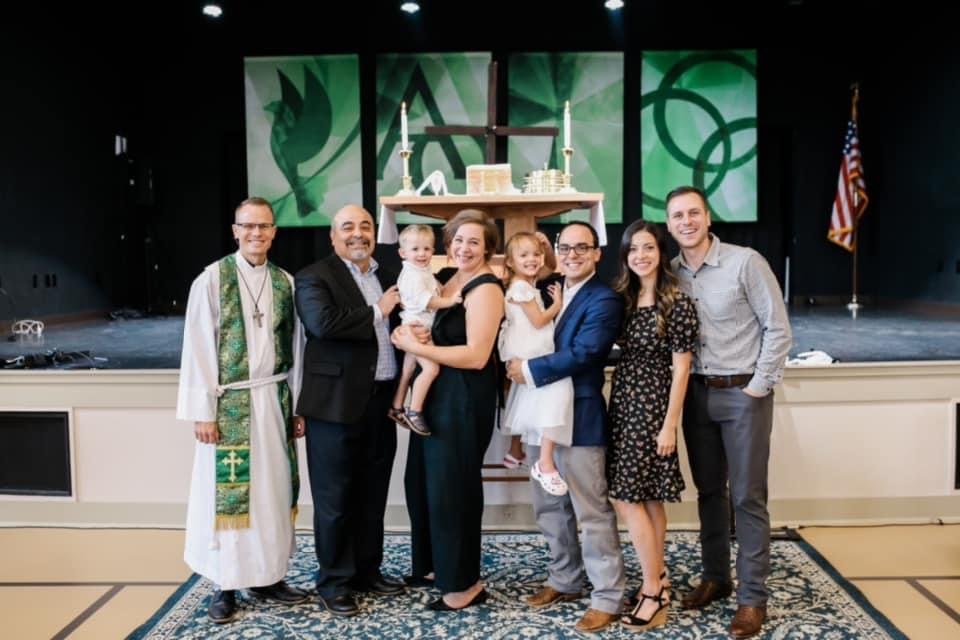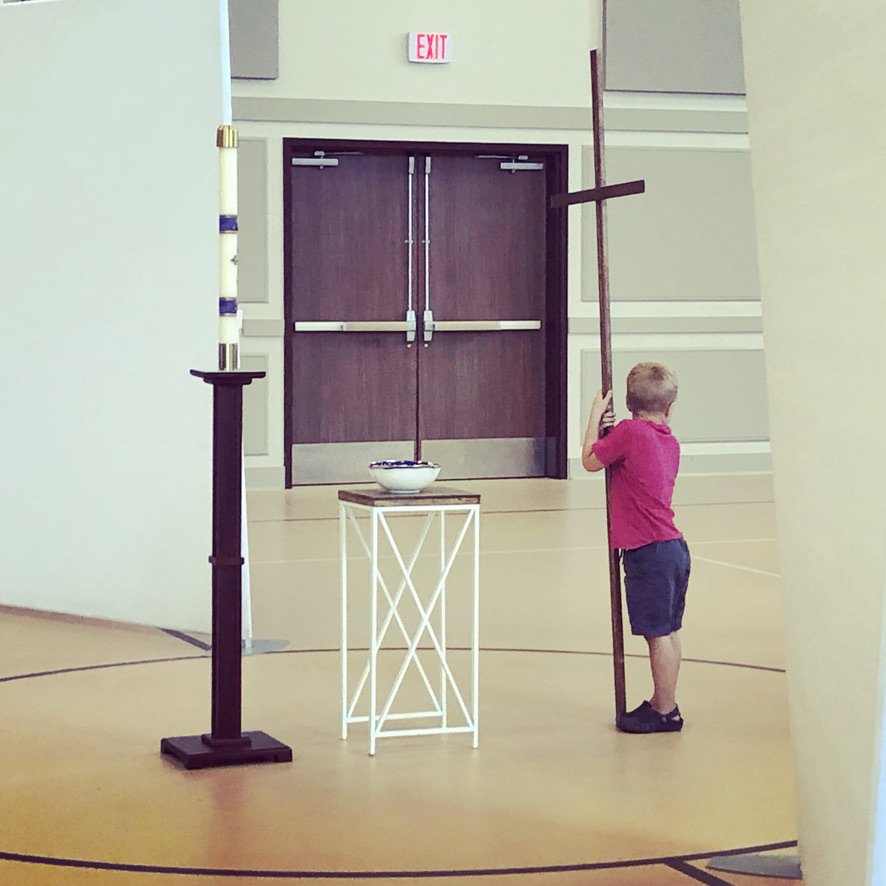Church plant meeting in dance studio
How to Plant a Church in Six (not so) Easy Steps
Our culture today is infatuated with “Life hacks” and “3 Easy Step” methods to achieve desired goals. While I’m all for working smart, I’m not a fan of promising quick and easy fixes to complex challenges. Rather than presenting Christianity as following the easy to travel Yellow Brick Road to the desired location, the Bible uses the imagery of a painful journey through the wilderness. Yes, it is marked by God’s miraculous deliverance through water and provision of bread from heaven, but it is also marked by mundane walking, frustrating leaders, terrifying enemies, and blazing hot days. I say all this with both the Christian life in view, as well as church planting.
I’ve heard it said that “church planting has been overcomplicated” and “it really is as simple as x, y, z.” While there may be some truth to these statements, it vastly underestimates the spiritual battle and cosmic war church planting is. There are no quick fixes, easy steps, or life-hacks to starting new churches. But there are best practices, wisdom, relying on the Holy Spirit, the community of faith, lots of hard work, prayer, and most importantly abiding in Christ. The following six steps are what I believe to be essential for any church plant, planter, or planting congregation.
1. Answer the Why?
The most important question we need to answer in any major endeavor is “why we are doing it?” Why do I want to attend college? Why do I want to get married? Why do I want this job? Or far more importantly, why do I need Jesus? The why question helps us begin discerning through all the possible unhealthy motivations and return to Christ’s call.
So why plant a church? Most fundamentally, Christ says that He will build his church and He commissioned us to be instruments of that work by going and making disciples by baptizing and teaching. This is why we plant churches, to carry out the work of King Jesus in redeeming the world and making for Himself a new people awaiting His return. All other motivations are superficial and rooted in vainglory.
What is your why? What is your congregations why?
2. Build a Team
Kingdom work is never to be done alone but always in partnership with the body of Christ. From the first step of discerning one’s call to plant it should be done in prayer with those around you - spouse, spiritual mentors, and trusted friends. Who are those people you can invite into this work? Building a team of advisors, prayer warriors, financial partners, and ministry co-laborers is fundamental to the work of establishing a new gospel outpost of goodness and beauty. Building a team is done by asking the Holy Spirit to bring the right people, humbling yourself to rely upon the people God has placed in your life, and listening to their council. Who’s your team?
3. Take time to prepare
Jesus exhorts us to count the cost of following him (Luke 14:25-33). Taking time to learn, grow, research, and prepare is counting the cost. For many individuals and congregations who feel called to start a new church, this time of preparation is often excruciatingly slow and difficult. In an eagerness to see a new congregation started, the premature birth of a church brings with it immaturity and dysfunction. The season of preparation, like the nine months a mother waits, should be filled with reading books, learning from experienced mothers, praying for your child, practicing healthy rhythms before the baby comes, surrounding yourself with a support team, and walking alongside others who have given birth to a child. To skip this season of preparation is perhaps the most common cause of church plant failures.
4. Clearly define what you are planting.
While this is a big part of preparation, it is worthy of its own point. Starting a new church isn’t like following instructions for a model plane or car, there are no manuals that can be followed with pre-cut pieces. Each and every church is unique to its context and unique because of the people a part of it. With that said, as biblical based and historically rooted Christians (Lutherans), we are not starting with a blank white board and filling it up with what we think the church should look like. There are non-negotiable for us, specifically our theology and how that theology is lived out. While this may seem like an unimportant step, assuming we know, and those on our ministry team know, what the local congregation is to look and feel like is a dangerous assumption. The reality is, each person part of a new church start brings assumptions to the table, both spoken and unspoken. Clearly defining what the church is (ecclesiology) and how it will be present in a specific community (missiology) are the two most important building blocks every plant needs to discuss. If we assume these, the church will take on a form and belief that merely reflects the culture around it or the background of the strongest/loudest members of the initial group. Our theology should very clearly inform the culture of every new church start.
5. Build relationship and invite people to Jesus and His Church
Once all the hard work of answering the why, building a team, preparing, and knowing what you are planting has been done, now we finally get to what people most often think about when we talk about church planting - reaching people for Jesus. Reaching people for Jesus always starts simply: two humans interacting, speaking of Jesus and His work through words and actions, and the Holy Spirit bringing new life. Church planting is a highly intensive people-work. It requires lots of face to face time and lots of shoulder to shoulder time. Paul uses the language of “laboring among” and “laboring in the midst of” when talking about church planting. It’s thoroughly immersive. As we build these relationships, live among them, and with them, then we give witness to Jesus and His church. We share the good news and invite them to enter into Christ’s Church. There is a move, from outside the Church, to inside the Church. I’m not speaking of a church building here but theologically and spiritually. We are planting kingdom outpost of truth, goodness, and beauty and it is into that we invite people. Places where the Spirit is transforming lives, the gospel is infused in all we do, the sacrament of the Lord’s Supper is nourishing as a foretaste of the kingdom to come, and we seek to live as co-heirs to that kingdom not yet fully here. We are not merely offering the forgiveness of sin, we are offering a whole new life in Christ and His Church.
6. Abide in Christ
Ministry, any kind of ministry, is fraught with dangers. Soul sucking, Satan devouring, and body draining landmines. There is a constant danger of thinking we are the Savior and being crushed by a burden we cannot carry, falling prey to discouragement and despair when things don’t look as we hoped, boiling over with frustration, and there is a constant danger of our soul becoming thin and shadowy because we spend all our energy trying to feed others and never take the time to feed our own souls. Sound despairing? It should. Our flesh and the devil are real enemies that are ever present who would like nothing better for all the above to happen to us. But thanks be to God we are not called to carry out this work in our own strength, thanks be to God we are invited to come to Christ whose burden is lite, thanks be to God who invites us to abide in Christ, and hear our Father’s voice who says time and time again that in Christ we are His beloved sons and daughters. Returning to and abiding in Christ must be our constant state. It is here alone that we find out true identity and strength for the work He calls us to. Thanks be to God!
~ Pastor Matt Ballmann
(Initially written for and distributed by the AFLC Home Missions Newsletter on 9/9/22)





